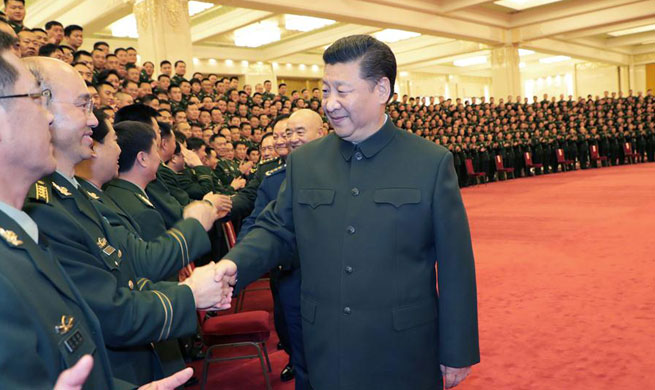BEIJING, Feb. 3 (Xinhua) -- Yana Zhuravleva, 38, from Russia is so used to living in Hainan, a tropical island at the southern tip of China, that she plans to bring her mother and grandmother to live with her.
"Life is comfortable here. The environment is nice and there are many work opportunities," said Zhuravleva.
Zhuravleva, who first arrived in Hainan in 2005, used to work at a travel agency. Thanks to an increase in Russian tourists to Hainan for medical care, Zhuravleva switched jobs two years ago to begin working at a Chinese medicine hospital, which served nearly 1,000 Russian medical tourists last year.
Zhuravleva said that her biggest dream is to earn enough money to buy a small house in Sanya, a coastal resort city in Hainan.
More and more foreigners like Zhuravleva have come to Hainan and fallen in love with the tropical island, not just to enjoy the warm climate, sunshine and beaches, but to pursue their dreams.
WORLD-CLASS TOURIST DESTINATION
Hainan has been making great progress toward its goal of becoming a world-class tourist destination. It has set a target to receive more than 1.3 million overseas tourists in 2020.
"Russian tourists love to visit the island, not just because it is relatively close, but also due to the fact that you can enjoy an integrated travelling experience that includes entertainment, cultural activities and medical care," said Andrey Denisov, Russian ambassador to China.
Hainan offers a wide range of travel packages that include sightseeing, beaches, folk customs, tropical rainforests, sports and health care.
More than 280,000 Russian tourists went to Hainan last year, a twofold increase compared with a year ago, according to Denisov.
"We hope to further strengthen tourism cooperation, increasing the percentage of Russian tourists to 50 percent out of all overseas tourists to Hainan," he said.
In fact, the number of overseas tourists to Hainan exceeded 1.1 million in 2017, up nearly 50 percent year on year, according to statistics from local authorities.
A three-year plan will be rolled out this year to make the island a top-tier destination, with preferential policies such as visa-free services, ticket promotions and service upgrades.
HUGE CHANGES
"I look forward to going back to Hainan because I think the changes there are just as dramatic as the rest of China. I can tell just by watching the pictures from here," said Norwegian ambassador to China Geir O. Pedersen, who visited the province back in 1988.
Large display panels and booths showing local specialties and recent developments in Hainan were part of a promotion event held Friday in Beijing. The event attracted more than 500 people, including Pedersen and other foreign diplomats from over 160 countries.
"It is not just nice beaches, beautiful people, but also many interesting developments, lots of new buildings, industries, especially high-tech development," said Pedersen, who expressed a hope to boost cooperation by drawing on each other's strengths.
Hainan's development started just 30 years ago, when the province was established as a Special Economic Zone.
"At that time, Hainan was a relatively backward border province with poor infrastructure, and you couldn't even see a traffic light," said Shen Xiaoming, governor of Hainan.
The formerly agricultural island has become a pioneer in innovation and openness. A sea-land-air transportation network has already been built to connect the province with the rest of the world, and the island is also home to the annual meeting of the Boao Forum for Asia.
"We want to send our invitation to the rest of the world. Welcome to Hainan for vacation, investment and experiencing its diverse culture," said Shen.

















